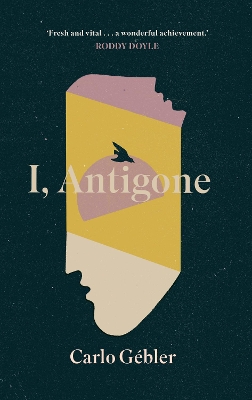A Greek mythology girlie through and through it only made sense that I start my audiobook journey with I, Antigone.
I was lucky enough to get my audiobook from NetGalley. And I’m glad that I started it a long while ago and left off when I hurt my knee. The book came in handy today. I was going to cry in the middle of 50 person line to enter a tax office, and yell at my boyfriend and HR. Books can save you in the most unexpected of ways, in unlikely spaces.
The story of Oedipus has always been a tragic one. No less tragic is the story of Jocasta, his wife and mother, and his children, one of whom, Antigone, narrates this story. We know Antigone’s story for the play by Sophocles. We know her fathers story even better. After all, Frued had a field day.
Frued didn’t mention that Oedipus tore his own eyes out.
I feel like there isn’t much I should mention about the plot. A book based on Greek mythology depends only on the strength of the writer and the journey they take on us. After all, we know these stories; we know the start and end and what happens in the middle. These characters are compelled to act the way they do. After all, as Stephen Mitchell put it,
“the trojans couldn’t give Helen back because they didn’t give her back.”
And as Antigone says
I’m not free to not do it.
There’s something oddly comforting and terrifying in that; that sometimes we must do what we must do for no other reason than it was written in us. Nurture or nature; fate or chance, the odds are sometimes just so stacked against us and all we can do is hurry ourselves along with some dignity.
This book was a good example of that. We never talk about Oedipus and Jocasta as man and wife. It’s always hidden away under what we know is incredibly repulsive. Although I think those of us who also grew up on Flowers in the Attic know that life is a bit harder and more messy than it needs to be. But his fidelity at the end when he asks to go to her funeral and is denied by Creon is a bit different. After all, we all know how horrified Oedipus and Jocasta were; the idea of fidelity, even after that is truly something. It’s these details that Carlos Gerber uses to bring them to life; to make us sympathetic towards them. We don’t need to like them all the time or their actions; but the story of Oedipus, as other stories in Greek myth, has always been one to show us that human beings are doomed. And it’s only how we conduct ourselves through that fate that make our lives worth something.
